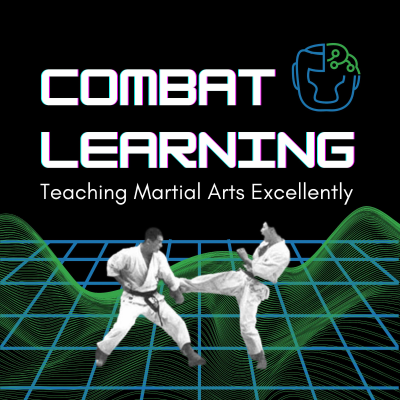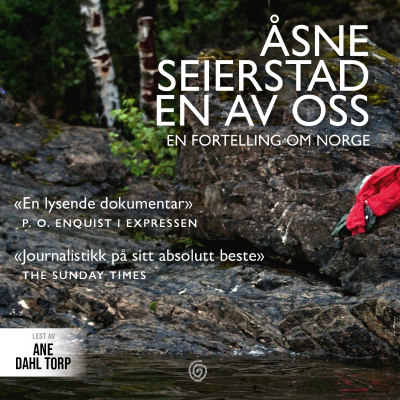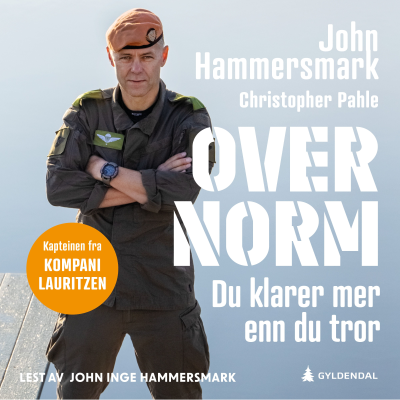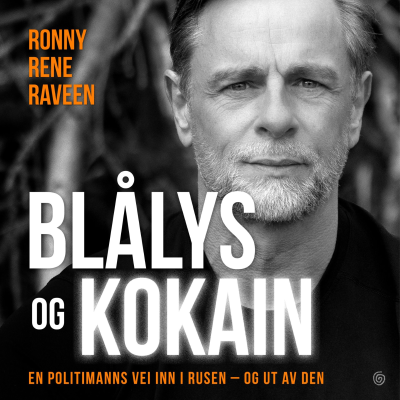
Teaching Martial Arts by Combat Learning
engelsk
Sport
Prøv gratis i 60 dager
99 kr / Måned etter prøveperioden.Avslutt når som helst.
- 20 timer lydbøker i måneden
- Eksklusive podkaster
- Gratis podkaster
Les mer Teaching Martial Arts by Combat Learning
Teach martial arts radically better using the ecological dynamics and constraints-led approach to training. Explore the little-known frontiers of skill adaptation, perceptual-motor learning, and performance science for combat sports such as jiu jitsu, taekwondo, kickboxing, karate, muay thai, and more. www.combatlearning.com
Alle episoder
87 EpisoderEcological Dynamics of Injury Recovery
Bring your CLA coaching and ecological dynamics knowledge to the next level and upgrade to the premium combat learning newsletter. It’s the best way to support the show, and you’ll get access to exclusive articles and recordings on how to practically apply the science of skill acquisition to martial arts training. Right now, I’m taking Rob Gray’s How We Learn to Move and applying it to martial arts practice design, chapter by chapter.Other premium articles include:- How to Manipulate Constraints to Build Deep Skill [https://www.combatlearning.com/p/how-manipulate-constraints-build-deep-skill] - How the Fundamentals Emerge on their Own [https://www.combatlearning.com/p/martial-arts-fundamentals-emerge-on-their-own] - Representative Learning Design for Martial Arts Training [https://www.combatlearning.com/p/representative-learning-design-ma-training]All that and more is available to you when you upgrade to the premium combat learning subscription. It’s less than an open mat drop in fee per month! Thanks for listening. Before you go, can you do me a big favor? Positive reviews help the show get more listens. If you got value from this episode, please leave us a review on Apple Podcasts or Spotify.See you on the next episode!This episode was produced by Micah Peacock, including the intro and outro music. This is a public episode. If you'd like to discuss this with other subscribers or get access to bonus episodes, visit www.combatlearning.com/subscribe [https://www.combatlearning.com/subscribe?utm_medium=podcast&utm_campaign=CTA_2]
You Need More Variability w/ Andre Grandbois
You could always use more variability. We discuss game selection variety, injury prevention, differential learning, and aliveness. Other topics covered: * The value of some information processing concepts * Performance vs learning, instruction as a constraint, and how to measure learning * Did the research you’re using include representative design? * The limits of representative learning design instruments * The importance of taxonomies and classification systems * How do decide density of drilling vs live work anyway? Bring your CLA coaching and ecological dynamics knowledge to the next level and upgrade to the premium combat learning newsletter. It's the best way to support the show, and you'll get access to exclusive articles and recordings on how to practically apply the science of skill acquisition to martial arts training. Right now, I'm taking Rob Gray's How We Learn to Move and applying it to martial arts practice design, chapter by chapter.Other premium articles include:- How to Manipulate Constraints to Build Deep Skill [https://www.combatlearning.com/p/how-manipulate-constraints-build-deep-skill] - How the Fundamentals Emerge on their Own [https://www.combatlearning.com/p/martial-arts-fundamentals-emerge-on-their-own] - Representative Learning Design for Martial Arts Training [https://www.combatlearning.com/p/representative-learning-design-ma-training]All that and more is available to you when you upgrade to the premium combat learning subscription. It's less than an open mat drop in fee per month! Thanks for listening. Before you go, can you do me a big favor? Positive reviews help the show get more listens. If you got value from this episode, please leave us a review on Apple Podcasts or Spotify.See you on the next episode!This episode was produced by Micah Peacock, including the intro and outro music. This is a public episode. If you'd like to discuss this with other subscribers or get access to bonus episodes, visit www.combatlearning.com/subscribe [https://www.combatlearning.com/subscribe?utm_medium=podcast&utm_campaign=CTA_2]
Why Details and Drilling Don't Work for Us w/ Andre Grandbois of Grappling Garden
It’s not a mystery at all why so many people quit jiu jitsu and martial arts generally, and coach Andre and I dissect why. Other subjects covered: * Praise the process, not the outcome (fostering intrinsic motivation) * Warmups * Athletic skills Bring your CLA coaching and ecological dynamics knowledge to the next level and upgrade to the premium combat learning newsletter. It's the best way to support the show, and you'll get access to exclusive articles and recordings on how to practically apply the science of skill acquisition to martial arts training. Right now, I'm taking Rob Gray's How We Learn to Move and applying it to martial arts practice design, chapter by chapter.Other premium articles include:- How to Manipulate Constraints to Build Deep Skill [https://www.combatlearning.com/p/how-manipulate-constraints-build-deep-skill] - How the Fundamentals Emerge on their Own [https://www.combatlearning.com/p/martial-arts-fundamentals-emerge-on-their-own] - Representative Learning Design for Martial Arts Training [https://www.combatlearning.com/p/representative-learning-design-ma-training]All that and more is available to you when you upgrade to the premium combat learning subscription. It's less than an open mat drop in fee per month! Thanks for listening. Before you go, can you do me a big favor? Positive reviews help the show get more listens. If you got value from this episode, please leave us a review on Apple Podcasts or Spotify.See you on the next episode!This episode was produced by Micah Peacock, including the intro and outro music. This is a public episode. If you'd like to discuss this with other subscribers or get access to bonus episodes, visit www.combatlearning.com/subscribe [https://www.combatlearning.com/subscribe?utm_medium=podcast&utm_campaign=CTA_2]
Coach Firas Zahabi's Big Dumb Oopsie
I didn’t watch the debate, but I know it sucked. What I found in the comments is embarrassing. Snort. A study lol. Why would scientists call a neurological phenomenon “muscle memory?” Doesn’t even pass the smell test. The article states that muscle memory is making muscles remember movements, but then Zahabi says it’s neurological. Sloppy, sophomoric, embarrassing, does not even merit reply, frankly. EDIT: I just noticed he calls it “muscle memory/motor learning”—this is idiotic at best and dishonest at worst. Of course motor learning is a empirical phenomenon; every conceivable theoretical camp in motor learning believes their own discipline of study exists. Greg is arguing for a view of motor learning. Why would he be arguing motor learning doesn’t exist? You can’t use the two interchangeably. Muscle memory is not motor learning. It doesn’t define motor learning, and it’s not a position inside motor learning except to people who have no idea what they’re talking about. This is a public episode. If you'd like to discuss this with other subscribers or get access to bonus episodes, visit www.combatlearning.com/subscribe [https://www.combatlearning.com/subscribe?utm_medium=podcast&utm_campaign=CTA_2]
5 Ways to Start Eco Training if You're Not at an Eco Gym
Interested in eco/CLA but stuck in a traditional school? Or maybe you’re frustrated with your progress, want to try something new, but are stuck inside a learning environment you don’t control. Either way, you still have some options. Of course, it’s optimal to run your own club or gym, but you can take ownership of your own learning journey and get started with CLA even if you don’t. Here’s the 5 best options I know. Bring your CLA coaching and ecological dynamics knowledge to the next level and upgrade to the premium combat learning newsletter. It's the best way to support the show, and you'll get access to exclusive articles and recordings on how to practically apply the science of skill acquisition to martial arts training. Right now, I'm taking Rob Gray's How We Learn to Move and applying it to martial arts practice design, chapter by chapter. Other premium articles include:- How to Manipulate Constraints to Build Deep Skill [https://www.combatlearning.com/p/how-manipulate-constraints-build-deep-skill] - How the Fundamentals Emerge on their Own [https://www.combatlearning.com/p/martial-arts-fundamentals-emerge-on-their-own] - Representative Learning Design for Martial Arts Training [https://www.combatlearning.com/p/representative-learning-design-ma-training] All that and more is available to you when you upgrade to the premium combat learning subscription. It's less than an open mat drop in fee per month! Thanks for listening. Before you go, can you do me a big favor? Positive reviews help the show get more listens. If you got value from this episode, please leave us a review on Apple Podcasts or Spotify. See you on the next episode! This episode was produced by Micah Peacock, including the intro and outro music. FCAI1wOo5LzyZQrx7W5z This is a public episode. If you'd like to discuss this with other subscribers or get access to bonus episodes, visit www.combatlearning.com/subscribe [https://www.combatlearning.com/subscribe?utm_medium=podcast&utm_campaign=CTA_2]
Velg abonnementet ditt
Premium
20 timer lydbøker
Eksklusive podkaster
Gratis podkaster
Avslutt når som helst
Prøv gratis i 60 dager
Deretter 99 kr / måned
Premium Plus
100 timer lydbøker
Eksklusive podkaster
Gratis podkaster
Avslutt når som helst
Prøv gratis i 60 dager
Deretter 169 kr / måned
Prøv gratis i 60 dager. 99 kr / Måned etter prøveperioden. Avslutt når som helst.

































